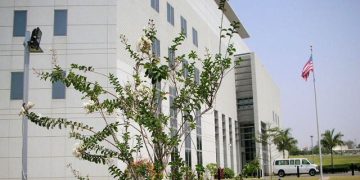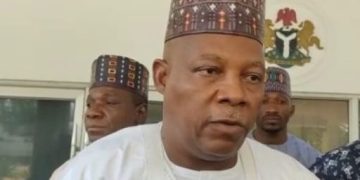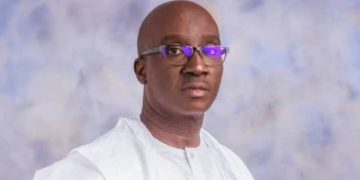
As the future of the Nigerian economy continues to look uncertain, the Chairman, Senate Committee on Judiciary, Human Rights and Legal Matters, Opeyemi Bamidele, has revealed that the approval given by the Senates to President Muhammadu Buhari to borrow $22.5bn is aimed at saving the country from sliding into another recession. READ ALSO: Crude Oil Prices: Nigeria May Enter Recession Again
Speaking at Iyin Ekiti in Irepodun/Ifelodun Local Government Area of Ekiti State during a programme organised by the Minister of Industry, Trade and Investment, Chief Niyi Adebayo, to mark his appointment as minister, the lawmaker posited that Nigerians should see the loan as a welcome development and a way to keep Nigeria’s economy soaring.
Bamidele said: “The step we took was to avert economic recession. To prevent such, government would have to build infrastructure like roads, rail lines, create wealth, provide employments and carry out other social services to help the people.”
Further disclosing the plans of the government, the Senator stated: “The legislative and the executive arms are working towards the same goal. It is for the development of our nation. The planners of economy knew that our budget must be well funded because we have to keep spending on infrastructure to avert recession.
“The 2020 budget estimate of the Federal Government is high and the government must ensure that it is made implementable through proper funding and the loan will help in making the funds available.
“It is important that we set a template for proper funding of the budget. But we are assuring Nigerians that the Senate won’t allow corruption under any guise. We are going to put proper legislation in place to stop pilfering of our money.
“In a democracy, criticism is normal, but our people should be more concerned about ensuring that the loan is well appropriated for the projects that will create wealth and lift our economy. I am sure that President Buhari won’t fail in this aspect.”
Bamidele who seized the occasion to praise Adeniyi for his quest for development and uplifting the populace, appealed to the minister to concentrate on the growth of the small and medium scale enterprises in Ekiti State, while also using his office to bring dividends of democracy to the state.
Nigeria is currently faced with the possibility of entering her second recession in four years. This follows the recent slump in the price of crude oil at the international market and the government’s inability to diversify the economy.
















